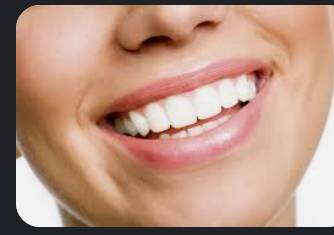Six natural ways to whiten teeth
Teeth inevitably begin to yellow with age, but a range of strategies can slow the process and even reverse it.
While tooth-whitening kits are readily available at most pharmacies, many natural remedies can also help remove stains and protect tooth enamel.
The following strategies may help whiten teeth:
1. Making dietary changes
Eliminating foods that mark the teeth can prevent further staining. Foods and beverages that contain tannins, such as wine and tea, can stain the teeth. Coffee, dark sodas, and juices can also stain them.
Acidic foods can make the teeth look yellow by wearing down the enamel. People who are concerned about the color of their teeth should avoid the excessive consumption of citrus, coffee, and soda. Alternatively, they should always brush their teeth after having them.
Dentists generally recommend waiting at least
Quitting smoking or tobacco products can reduce the risk of nicotine stains. It can also prevent tooth decay and gum disease, both of which can damage the enamel and cause oral health issues.
2. Trying oil pulling
Oil pulling is the term for washing the mouth with oil to remove dirt, bacteria, and debris. It is not a substitute for regular brushing or flossing, but some research suggests that washing the mouth with certain oils may help to whiten the teeth.
The American Dental Association (ADA) considers oil pulling to be unconventional dentistry, stating, “there are no reliable scientific studies to show that oil pulling reduces cavities, whitens teeth, or improves oral health and well-being.”
However, to try this method, rinse the mouth with oil for about
Oils suitable for oil pulling include:
- coconut oil
- sunflower oil
- sesame oil
3. Brushing with baking soda
Baking soda can gently polish away stains on the surface of the teeth. Some people worry that baking soda is too harsh and may grind away enamel, but research from 2017 found it to be a safe way to remove stains.
Baking soda may also help to fight bacteria, which suggests that it may be able to reduce plaque and prevent tooth decay.
4. Using hydrogen peroxide
Hydrogen peroxide is a mild bleach that
Hydrogen peroxide may increase tooth sensitivity, so it is not suitable for long-term use or for people who already have sensitive teeth.
5. Whitening with fruit
Papain and bromelain, which are enzymes that occur in papayas and pineapples respectively, may both help to whiten teeth.
A
However, more research is necessary to determine whether or not these enzymes are effective. The ADA does not recommend rubbing your teeth directly with pieces of fruit, as the acid in the fruit can actually make the color of teeth worse.
6. Chewing high fiber foods
Chewing certain high fiber vegetables and legumes can help neutralize the acid in the mouth and protect the enamel on the teeth.
Beans or leafy greens like spinach trigger the mouth to produce more saliva, which helps clean the mouth from acid.
Teeth turn yellow for two reasons:
Enamel thinning
The outer layer of teeth consists of enamel, which is colored almost white and protects the deeper tooth structures. Beneath the enamel is a layer of tissue called dentin, which is yellow-brown. When the enamel layer thins or wears away, the dentin shows through more so teeth begin to look darker.
Acidic foods, gum disease, and aging can wear down tooth enamel. Some people also have enamel that is naturally thinner.
Stains
Specific foods and beverages, such as coffee, can stain the teeth. Some foods that stain the teeth may also wear down the enamel, increasing the yellowing.
Other sources of stains include smoking and tobacco products, and some medications.
Natural teeth-whitening strategies that may harm the teeth include using:
- lemons
- oranges
- apple cider vinegar
- activated charcoal
Maintaining excellent oral hygiene is the most important thing that a person can do to prevent and reduce tooth yellowing.
Regular brushing and flossing can protect the enamel, prevent gum decay, and help remove stains.
Good oral hygiene includes:
- Brushing the teeth at least twice a day. A person should be sure to also clean around the gums and the backs of the teeth.
- Using fluoride toothpaste. Fluoride can fight and even reverse tooth decay. Though some people oppose using fluoride, dentists believe that fluoride is safe and beneficial for teeth.
- Flossing to remove plaque between the teeth.
The following are answers to common questions about tooth whitening.
What other things can cause tooth discoloration?
Certain antihistamines, antipsychotics, and high blood pressure medications may cause the teeth to become darker. Cancer treatments may also have this effect. In addition, children exposed to certain antibiotics at a young age may experience tooth discoloration as adults.
How do I whiten teeth overnight?
No treatment can whiten teeth overnight, but some options are faster than others. Natural or over-the-counter treatment may take longer than treatments at the dentist’s office. Even in the latter case, whitening is likely to require several treatment sessions of several hours each.
What do dentists use to whiten teeth?
Dentists most commonly use hydrogen peroxide or carbamide peroxide to whiten teeth.
Few people have naturally white teeth, as teeth tend to yellow with age. However, maintaining excellent oral hygiene and having regular dental checkups can help to keep teeth bright.
Yellow teeth are not usually the sign of a health problem, but a dentist can check for enamel loss and tooth decay.
Natural remedies can help people whiten their teeth at home. A dentist can also offer professional teeth whitening.





No comments yet
Be the first to share your thoughts!